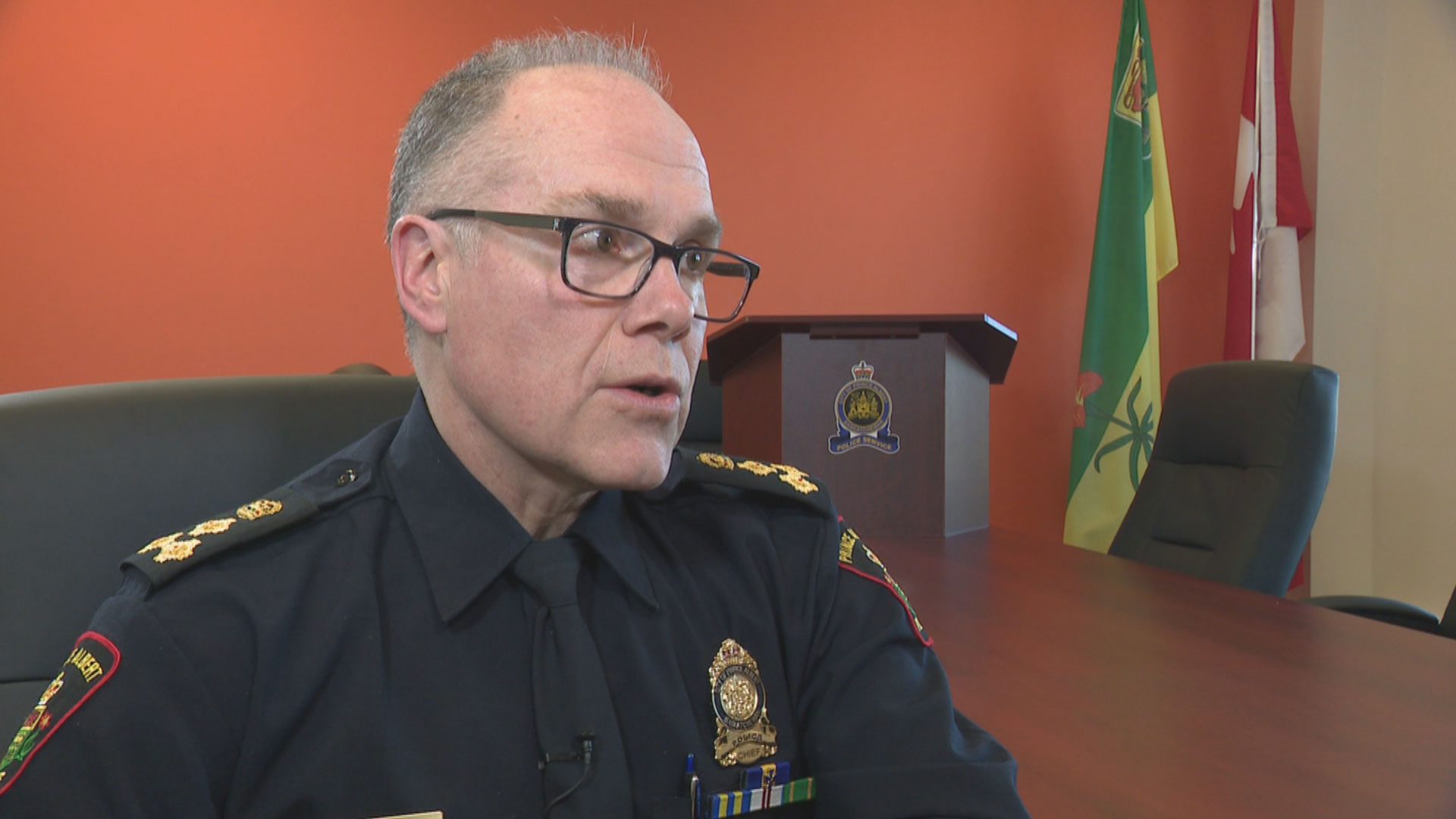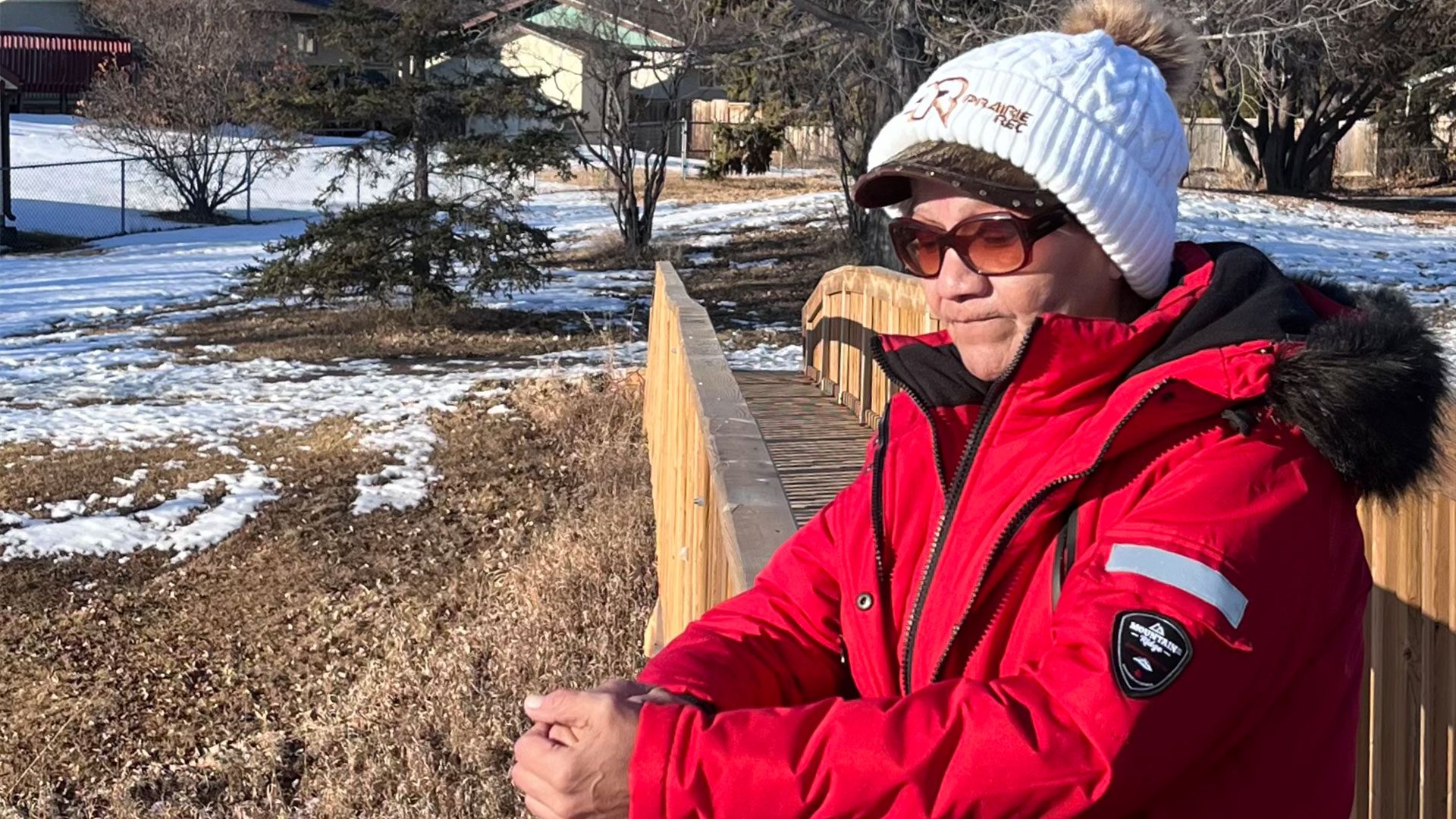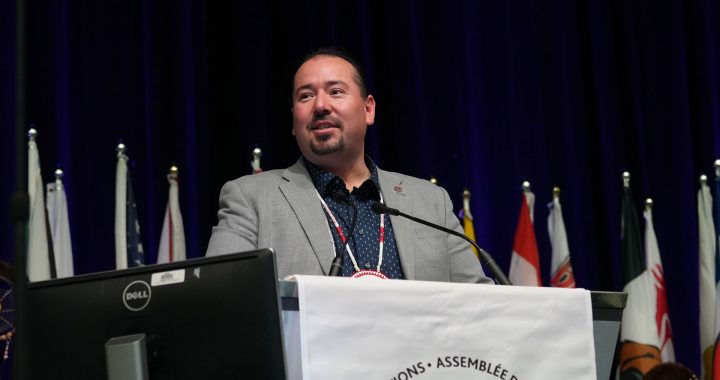The province of Saskatchewan is being criticized for holding a special inquiry into the Prince Albert Police Service and then limiting the people who can read the report’s findings.
In November 2022, the province launched a probe into the police service after three people died while in custody. The inquiry was also prompted by the death of Tanner Brass, a toddler who was left in the care of his abusive father. The report was released on
“It just makes it feel like they have something to hide when they’re not releasing it,” said John Hansen, a professor at the University of Saskatchewan in the APTN Investigates episode Jail Town.
The only member of the police service to read the entire 70-page report is the police chief. The recommendations, however, were released to the public in July 2023.
“The recommendations identified a number of areas for improvement within the Prince Albert Police Service,” said Christine Tell, minister of Corrections and Policing. “Government is working with the Prince Albert Board of Police Commissioners, the interim Chief, and the Prince Albert Police Association to implement these recommendations and move forward so the people of Prince Albert can be confident in the service’s ability to keep them and their community safe.”
APTN tried to access the full report through a freedom of information request, but the province would only disclose the document with all but the six pages of recommendations redacted.
In a statement emailed to APTN Investigates, the province wrote, “There are personal, sensitive and confidential details in the report that cannot be released publicly.”

In the case of the toddler, Tanner’s mother – Kyla Frenchman – had called police seeking help because Tanner’s dad was drunk and abusive.
Instead, police arrested her and left Tanner with his father, Kaij Brass, who has been found guilty of manslaughter and sentenced to 16 years.
“It really looks like an unhealthy situation in Prince Albert,” said Hansen who added that with the large representation of Indigenous people in the population, and the significant number of prisons in Prince Albert, “It kind of raises the idea of the prison industrial complex in which, in this model, Indigenous people are viewed as commodities.”
In Prince Albert, there are five jails with about 1,500 prisoners. About 1,000 people are employed in corrections and policing-related roles.
Forty-two per cent of Prince Albert’s 38,000 people are Indigenous.
Hansen found the stories coming out of Prince Albert concerning and interesting enough to include in a class he’s teaching called Institutional Racism and Indigenous People.
“I took some news stories about Kyla Frenchman’s case and the three in custody deaths and we had a classroom discussion of the treatment received by the police and we related it to racialized stereotypes and historical colonization and ongoing colonization,” says Hansen.
For the sake of transparency, Hansen said the inquiry into the Prince Albert police should be public.
At the moment, the only member of the police service who has access to the full report is police chief Patrick Nogier.
“A really important part of this is that the administration here had not seen the entire report,” says Nogier, “and to this day, they have not seen the entire report because it’s embargoed.”

The Jail Town episode of APTN Investigates explores the effects of Prince Albert’s policing and corrections culture through the eyes of Indigenous people in the community such as Tina McKenzie, who lost a daughter to suspicious circumstances at the Pine Grove Correctional Centre on Jan. 3, 2024, and Prince Albert Grand Council Grand Chief Brian Hardlotte.
“Well, you know, any inmate dying in an institution, questions are asked,” says Hardlotte. “If inmates are dying, someone has to speak up for them.”
But as Hansen pointed out, fixing things is another matter.
“If these police can find a way to repair the harm to Kyla Frenchman, you know, that’s what needs to be done,” said Hansen. “I don’t know how they could repair it, but for them to be accountable, the police have to find a way to repair the harm for Kyla Frenchman.
“They also have to find a way to repair the harm to those three men who died in police custody – that’s what restorative justice is all about.”












